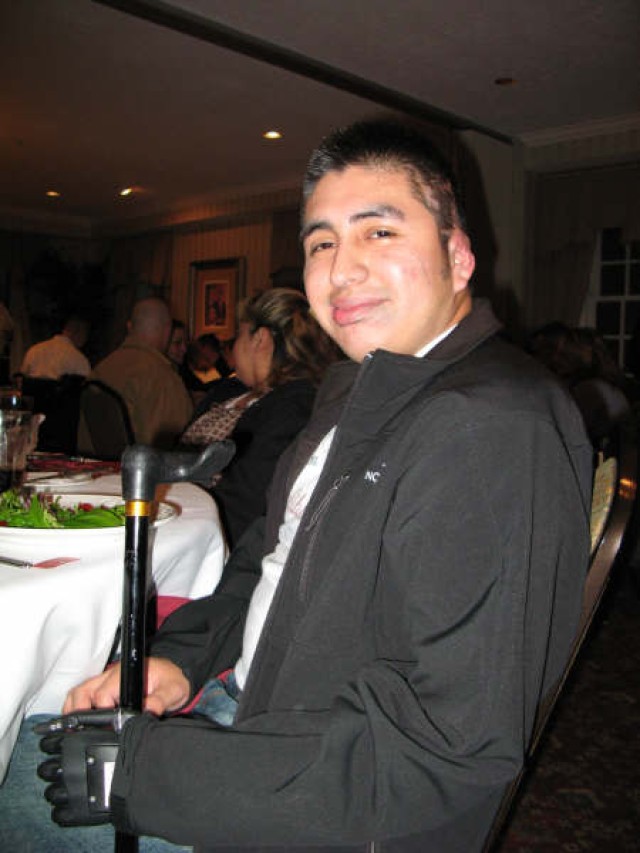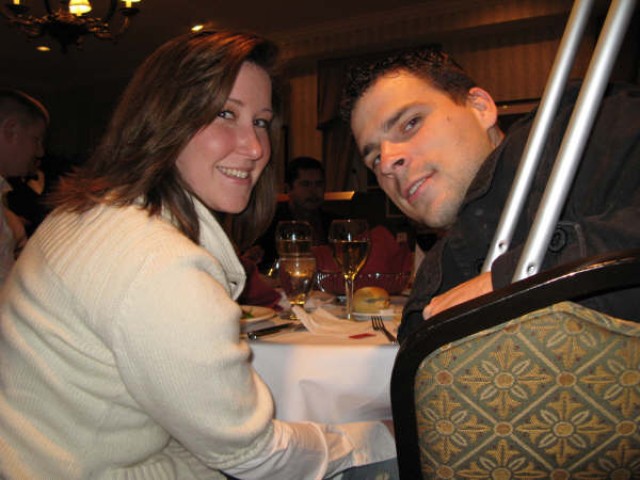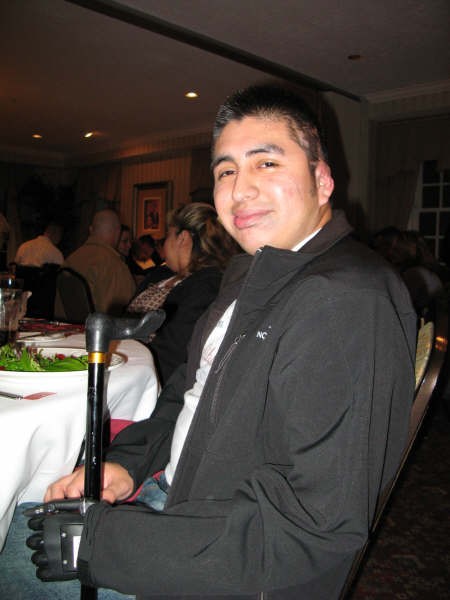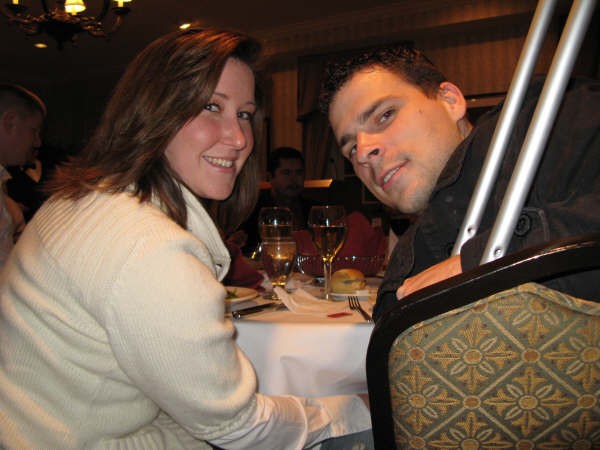WASHINGTON, Nov. 15, 2008 - As ghostlike Capitol Hill workers scurried through a cold, misty fog early Friday evening, a nearby group of wounded and injured warriors cosseted in a warm room broke bread and shared stories about far-away lands and future hopes.
As the bus from Walter Reed Army Medical Center pulled up at the entrance of the Capitol Hill Club on 1st Street here, Hal Koster, a white-goateed bear of a man, greeted each arrival with a wide grin and cheerful words.
Five years ago, Koster began providing free steak dinners to wounded and injured troops returning from Afghanistan and Iraq at his Fran O'Brien's Stadium Steak House, until the restaurant closed in 2006. Afterward, he said, dinners for these troops were held at several local eateries as well as the Capitol Hill Club, which holds a monthly dinner for the wounded warriors. Troop dinners also have been hosted by the Italian, Australian and several other embassies here, he said.
Koster manages the Aleethia Foundation, which funds the dinners.
"The entire country has been behind these troops and it's unfortunate what's happened to them," said Koster, an Army Vietnam veteran. "It's been an absolute pleasure for me to meet them. I wish that I had met them under different circumstances, but that's looking back and that's not the direction they're going - they're going forward."
These troops "provided a service to this country ... the least we can do is buy them a dinner on Friday night," Koster said. "There are a lot of organizations doing good things for the troops. Our focus has been on the newly-injured; to try to get them out of the hospital as soon as possible."
The dinners are mostly private affairs, Koster said, in deference to the feelings of the troops and their families. Former Deputy Defense Secretary Paul D. Wolfowitz, he said, is a staunch supporter of the dinners and attends as many as he can.
"We keep these dinners in closed rooms so that they don't have to be out in the general public," Koster said, so as to foster the troops' natural camaraderie and conversation flow.
Also, he said, troops that have undergone amputations as a result of their wounds can be self-conscious about their injuries and initially worry about how they are perceived by the public.
When injured troops are first healing, "they don't want people to see them, for example when they've lost an arm and can't cut their food right ... it's not as difficult to ask your buddy next to you to cut your food if your buddy is missing both legs," Koster explained.
At the Capitol Hill Club last night, Army Staff Sgt. Anthony Maschek, 26, and his 25-year-old wife, Angela, praised the troop dinners. Maschek, a 10th Mountain Division infantryman from Twin Falls , Idaho , was shot 11 times causing two broken legs during a February 2008 firefight near Kirkuk in northern Iraq . He credited the ceramic plates in his armored vest for saving his live.
Maschek, an outpatient living at Walter Reed, is a veteran of many such troop dinners. He plans to obtain a medical discharge next year and go to college to study business.
"It's really nice," Maschek said of the dinners and other events conducted for wounded troops. "So many people come in and talk to us and do things for us."
Anthony "has been positive right from the get-go," Angela Maschek said of her husband's outlook for the future. She also praised the "great" medical staff at Walter Reed.
The dinners "are a really nice place to share some time with friends," she said. "You get away from the hospital environment and the steak is great."
Army Sgt. Marco Robledo, 22, served in Iraq as a combat engineer with his Arkansas National Guard unit. In May 2007, Robledo was riding in a Humvee about 20 miles north of Baghdad when a roadside bomb exploded, causing him to lose his left arm and leg.
Robledo, who hails from Clarksville , Ark. , has been at Walter Reed for almost a year-and-a-half and he's expecting to receive a medical discharge soon.
"I feel better now; I should be home by January, hopefully," he said. "The people at Walter Reed and the care overall has been wonderful. They gave me my life back."
The dinners are "a good way of getting off of the Walter Reed post and join others' company and just forget where you are and have a wonderful dinner," Robledo said.
"Everybody appreciates us so much; it kind of makes you feel good," former 3rd Infantry Division soldier Cpl. Todd Bishop said. Bishop, 23, lost his lower legs to a roadside bomb that detonated under his Humvee during a patrol southeast of Baghdad in May 2005. He was medically discharged and now lives in Interlachen , Fla.
Bishop had traveled up to Washington to have some metal bracing removed from his legs and to care for an infection. Regarding his future plans, Bishop said he likes to draw and has "been in contact with a few buddies about being an architect, going back to school and getting a degree in architecture."
Besides a social gathering place, the dinners also function as a healing process for the wounded and injured warriors, Koster said.
"Coming to these dinners is getting back on the horse, but it's walking the horse, not galloping the horse," Koster said. "They can start off slowly; they can learn to cut their food and eat their food in an environment where they don't have to feel threatened.
"We just try to help them get through that initial phase," he said.




Social Sharing